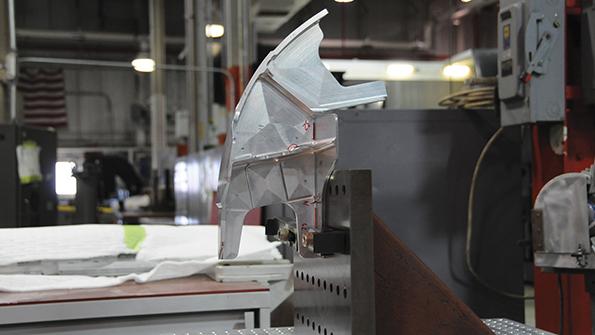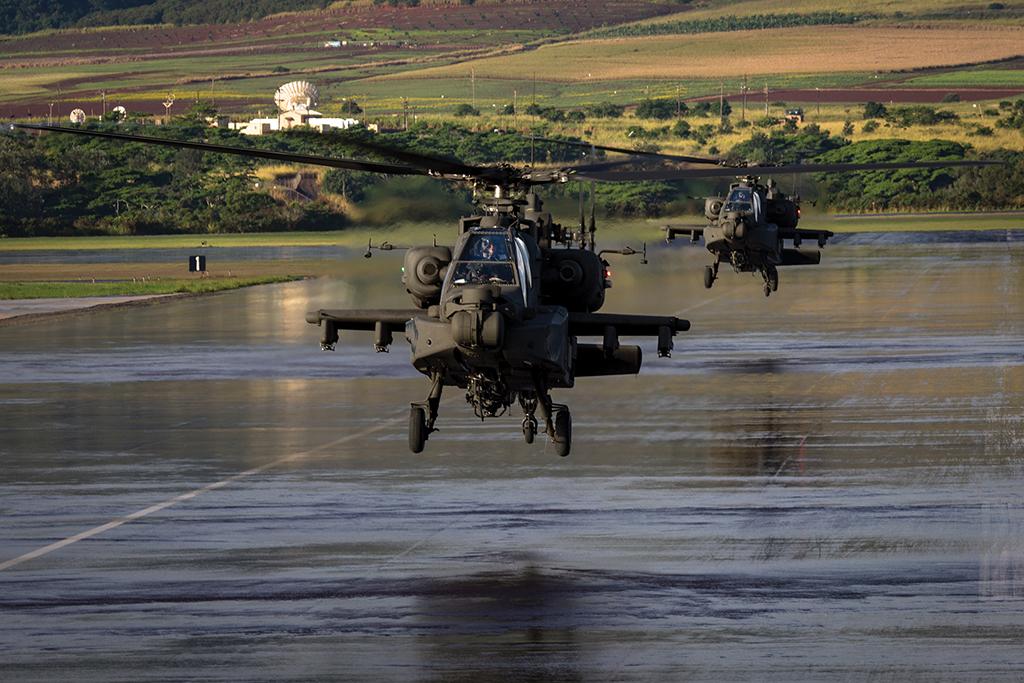How COVID-19 Is Affecting The Defense Industrial Base | コロナ危機が防衛産業基盤に及ぼしている影響

コロナ危機は、防衛産業基盤が常に抱えていたリスクのいくつかを悪化させた。政府支援や国防総省の潤沢な予算により初期の影響は相殺できたが、さらに多くの課題が迫っている。
Aviation WeekのDefenseChain Conferenceで金融アナリストが語ったところでは、防衛産業基盤が持つ最大のリスクのひとつは、軍需産業に従事する企業の一部は民間部門の事業比率が過度に高かったり、海外企業への依存度が高すぎることだ。
Destiny Equity Partners社のマネージングプリンシパル・ Chris Celtruda氏は、「これらの企業の中には、あと2週間で倒産するようなところもある」と話す。サプライヤーは、サイバーセキュリティの強化・ボーイング社やロッキードマーチン社といった主請負企業からの強い圧力・民間部門への依存度といった複数の要因が重なり、業績が低迷し始めている。その代表例が、 Impresa Aerospace社の倒産だ。同社はカンザス州ウィチタを拠点に、ボーイング社やロッキード社製の軍用機向けにコンピューター数値制御装置を用いた部品や板金部品、各種アッセンブリーを製造していたが、民間機であるボーイング737MAXへの依存度が高かった。
米連邦政府の給与保護プログラムはいくつかの事業破綻を遅らせることには役立ったが、それ以外の破綻は避けられないと語るのは、Acorn Growth社のマネージングパートナー・ Rick Nagel氏だ。彼は「Impresa社の倒産は、今後我々が目にするかもしれない多くの倒産の一例にすぎない」と付け加えた。
ニッチな事業を手がける企業の弱体化は、国防総省にとって将来的な問題を生じる可能性がある。「主要プログラムにおける多くの重要なシステムに、複数の単一障害点が存在することに驚きを隠せない」と彼は話す。
国防総省では、重要なサプライヤーを維持し、国際的な産業基盤を通じて生産を続けさせるために、当局者が取り組んできた。

米陸軍においては、インドにおけるAH-64Eアパッチの生産や、メキシコからの発電機の納入が途絶えたことが発端となった。国防総省と国務省はこの物流停止の解消を支援したが、この事件をきっかけに、国際的なサプライチェーンリスクを全面的に見直すことになった。
「これを乗り切ることはできると思うが、今日のグローバル経済の中では当然複雑なものになるだろう」と話すのは、米陸軍航空部門の副プログラム執行官・ Patrick Mason氏だ。そして、彼はベンダーに対してコスト削減、特に航空機の複数年度契約により価格を低減するよう圧力をかける立場にあると付け加えた。
コロナ禍の中で生まれつつあるトレンドのひとつは、サイバーセキュリティや国内産業基盤の保護を目的とした、国内生産への回帰だ。
民間航空機マーケットが低迷する中でこのようなことが起きれば、そこには商機があると語るのは、 Elbit Systems of America社の社長兼CEO・ Raanan Horowitz氏だ。「我々はこのような不連続性がある中で、いくつかのポジションを取ろうとしている」と彼は話し、同社としては派手さはなくても価値のある商機を追求することを重視しており、「ライセンス取得やオンリーワン製品の買収などを通じて、長期的なソリューションの一部となることに注力している」と付け加えた。
また同氏は、Elbit社は新規ビジネスを獲得するためにアメリカのインフラに投資しているという。業界関係者は、防衛装備品のサプライチェーンをアメリカ国内に回帰させることは幅広い支持を得ているとみている。コロナ禍による景気後退はこの回帰の理由のひとつだが、加えて中国に対する長年の懸念から生じたものでもある。2020年度の国防権限法においては、議会は中国製の通信機器を使用する企業との契約を制限する法案を可決した。
企業はまず最高の価値を求めるが、中国製部品が機能しなかったり、機密情報を中国に送信する可能性といったリスクは今も継続していると語るのは、航空宇宙産業協会(Aerospace Industries Association)の国家安全保障政策担当副会長・ John Luddy氏だ。「同盟国や友好国との関係を強化するためにサプライチェーンをアメリカ国内に回帰させるという考え方は、生産上の観点・機能面の観点・同盟関係の観点から、少しずつ盛り上がっていくだろう。また、議会では我々がいかに脆弱な立場に置かれているかを把握すべきだという、強い想いもある。来年は、これまで以上に激しい議論が交わされることになるだろう」と彼は話す。
ただし、その回帰に向かうトレンドは、意図しない結果をもたらす可能性もあると警告するのは、Grundman Advisory社の創業者兼代表・Steve Grundman氏だ。
「防衛分野・航空宇宙分野のサプライチェーンに悪質な部品供給や悪意のあるコードが侵入することを防ごうという良心的な取り組みが、いとも簡単に保護主義に陥ってしまうというリスクを純粋に懸念している。もし本当に国防費に圧力をかけたいのなら、防衛業界にサプライチェーンの国内回帰を依頼するべきだ」と同氏は語る。
以上は、Jen DiMascioが Aviation Week & Space Technologyいた記事です。Aviation Week Intelligence Network (AWIN) のメンバーシップにご登録いただくと、開発プログラムやフリートの情報、会社や連絡先データベースへのアクセスが可能になり、新たなビジネスの発見やマーケット動向を把握することができます。貴社向けにカスタマイズされた製品デモをリクエスト。
The COVID-19 pandemic has exacerbated some of the risks that have always existed in the defense industrial base. Although government assistance and a robust Pentagon budget have helped offset initial trials, more challenges are looming.
One of the biggest risks to the defense industrial base is that some companies serving the military are too heavily leveraged toward the commercial sector or too reliant on international companies, financial analysts told Aviation Week’s DefenseChain Conference.
“Some of these places are two weeks from bankruptcy,” says Chris Celtruda, managing principal at Destiny Equity Partners, says. Suppliers are beginning to falter because of a combination of factors, including the need to comply with cybersecurity standards, the pressure that prime contractors such as Boeing and Lockheed Martin have applied to them and their reliance on commercial business. A prime example is the recent bankruptcy of Impresa Aerospace, a Wichita-based company that made parts using computer numerical control machines as well as sheet metal parts and assemblies for Boeing and Lockheed military aircraft but was highly dependent on its work for the commercial Boeing 737 MAX.
The U.S. federal Paycheck Protection Program helped delay some business failures, but others are inevitable, says Rick Nagel, managing partner of Acorn Growth. “The Impresa bankruptcy is an example of a lot more insolvencies we may see,” he adds.
Weakness among niche companies could pose a problem for the Defense Department in the future. “I’m always amazed at how many critical systems have multiple single points of failure on major programs,” he says.
At the Pentagon, officials have been working to keep essential suppliers afloat and to keep production moving through its sprawling international industrial base.

For the U.S. Army, that has meant initial disruptions to Apache fuselage production in India and to the flow of generators from Mexico. The Pentagon and the State Department helped ease the stoppage, but the incident has caused them to review the full range of risks to its international supply chain.
“I think that we can navigate through this, though it’s certainly always going to be complex in today’s global economy,” says Patrick Mason, deputy program executive officer for U.S. Army Aviation, adding that he is in the position of putting pressure on vendors to reduce cost, particularly to provide savings on multiyear aircraft contracts.
One trend emerging along with the pandemic is a movement toward onshoring or reshoring overseas business for reasons of cybersecurity and the protection of the U.S. industrial base.
As that happens, and as the commercial aviation market sags, Raanan Horowitz, president and CEO of Elbit Systems of America sees opportunity. “We are trying to position ourselves around some of those discontinuities,” Horowitz says, adding that the company likes going after opportunities that are not necessarily glitzy but hold value. “We are intensifying efforts toward looking at licensing, taking over orphan product lines and positioning ourselves to be part of the long-term solution.”
Horowitz says Elbit is investing in U.S. infrastructure to capture new business. Industry officials see broad support for bringing more of the defense supply chain back to the U.S. The shift stems in part from the COVID-19-related economic downturn but also from longstanding concerns about China. In the fiscal 2020 National Defense Authorization Act, Congress passed restrictions on contracting with companies that use Chinese telecommunications equipment.
Though companies first look for the best value, the threat posed by Chinese parts that either do not work or could transmit classified information back to China is an ongoing concern, says John Luddy, vice president for national security policy at the Aerospace Industries Association. “The concept of reshoring of supplies to better connect our allies and friends, both from a production standpoint and from an operational functionality and alliance standpoint, I think the volume is getting turned up on that a little bit,” he says. “There’s also a strong impetus in Congress to look at exactly how vulnerable we are. That’s going to be a more intense discussion in the year to come than it has been.”
And that trend toward reshoring could have unintended consequences, warns Steve Grundman, founder and principal of Grundman Advisory.
“I’m genuinely concerned that benign moves to secure our supply chain to prevent nefarious supplies and code [coming] into particularly our defense supply chain or commercial aerospace supply chain could slip very easily into protectionism,” Grundman says. “If you want to really put pressure on the defense budget, ask the defense industry to reshore the supply chain.